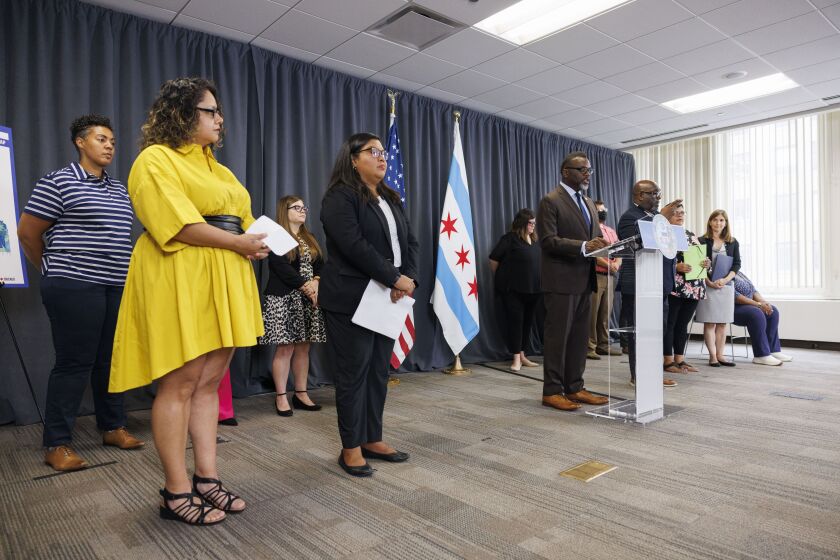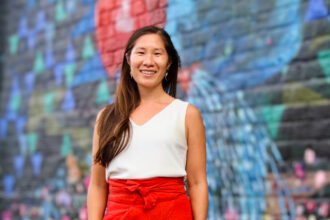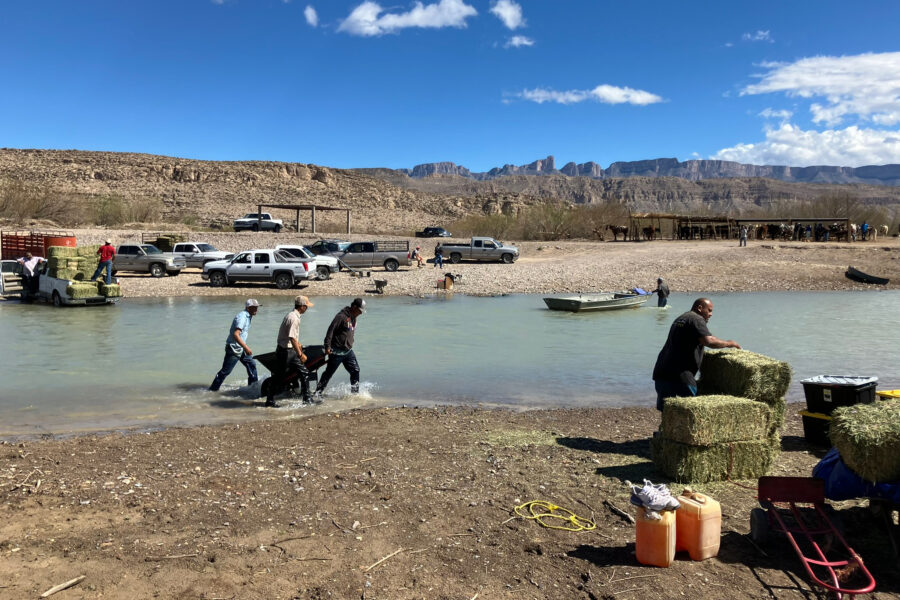This article originally appeared in the Chicago Sun-Times. It is republished with permission.
Promising to end the practice of piling on more environmental burdens to the same South and West Side communities, Mayor Brandon Johnson is proposing a series of reforms aimed at changing city practices after federal investigators last year determined Chicago violates the civil rights of its residents by concentrating polluting businesses in Black and Brown communities.
The proposals include new policies for city departments that include better response times to environmental complaints, air monitoring and measures to reduce air pollution, public engagement around planning and development, and investments in so-called environmental justice communities, areas that receive a disproportionate share of pollution.
The Johnson administration also will ask the City Council to pass new laws related to planning and zoning that make it more difficult to continue placing polluting businesses in the same communities that have historically received them, all on the city’s South and West sides.
The content of a binding agreement with the U.S. Department of Housing and Urban Development that promises to end discriminatory practices would be passed into law under the plan.
“In the greatest city in the world, no neighborhood should have to suffer the burdens of pollution more so than any other neighborhood,” Johnson said at a City Hall news conference flanked by community activists. “The time to act on environmental justice is now.”
HUD wrapped up a more than year and a half investigation of Chicago in 2022 after Southeast Side community groups complained that the planned relocation of the General Iron scrap metal business in Lincoln Park to the East Side was discriminatory. The investigators agreed that moving the business, deemed a nuisance in the white, wealthy neighborhood, to a Latino community surrounded by Black residential areas was a civil rights violation.
Though Mayor Lori Lightfoot denied the permit to allow the relocated scrap-metal operator to open on the Southeast Side at East 116th Street along the Calumet River, the business’ owner is asking a judge to overturn that decision.
Regardless, Chicago needs to change its ways, the feds said, and Lightfoot signed the binding agreement with President Joe Biden’s administration in the spring just before Johnson took office.
“This is a milestone in a much longer journey,” said Olga Bautista, who leads one of the Southeast Side community groups that brought the civil rights complaint.
After a citywide study of the cumulative impact of pollution and other social stresses that began in the spring of 2022, Chicago now defines a broader area of what it calls environmental justice communities that include Austin, East Garfield Park and West Garfield Park, Englewood, Humboldt Park, Roseland and other South and West side areas.
These communities are affected by industry and heavy traffic from busy roads, the city found, and they join other neighborhoods previously identified as suffering from too much pollution, including Little Village, McKinley Park, Pilsen, East Side and South Deering.
“Now we have a road map to combat those inequities,” Johnson said.
Kim Wasserman, who heads Little Village Environmental Justice Organization, was visibly emotional as she joined Johnson at the news conference.
“Thank you mayor for giving us a chance to breathe,” she said.

The analysis took into consideration both the amount of pollution and other social stresses common in the largely low-income communities of color.
“These are the areas with the greatest combined environmental health and social burdens,” said Megan Cunningham, the city Department of Public Health deputy director who oversaw the cumulative burden study.
Angela Tovar, the city’s top environmental officer hired by Lightfoot, began talking about a city ordinance to combat the cumulative burden of pollution in 2020.
“This is a process that took years because to think about what we’re doing requires systemic change,” Tovar said.
The plan also calls for publicly accessible data on a number of environmental factors, including pollution levels by community, historical locations of dirty industry and chronic disease rates in children.
The city’s plan was also created after collaboration with a number of environmental justice organizations, including Wasserman’s group and People for Community Recovery.
Cheryl Johnson, whose group People for Community Recovery helped bring the HUD complaint, called the collaboration with City Hall “a commitment that our lived experience will inform the changes to a racist system of zoning in Chicago.”
Brett Chase’s reporting on the environment and public health is made possible by a grant from The Chicago Community Trust.
About This Story
Perhaps you noticed: This story, like all the news we publish, is free to read. That’s because Inside Climate News is a 501c3 nonprofit organization. We do not charge a subscription fee, lock our news behind a paywall, or clutter our website with ads. We make our news on climate and the environment freely available to you and anyone who wants it.
That’s not all. We also share our news for free with scores of other media organizations around the country. Many of them can’t afford to do environmental journalism of their own. We’ve built bureaus from coast to coast to report local stories, collaborate with local newsrooms and co-publish articles so that this vital work is shared as widely as possible.
Two of us launched ICN in 2007. Six years later we earned a Pulitzer Prize for National Reporting, and now we run the oldest and largest dedicated climate newsroom in the nation. We tell the story in all its complexity. We hold polluters accountable. We expose environmental injustice. We debunk misinformation. We scrutinize solutions and inspire action.
Donations from readers like you fund every aspect of what we do. If you don’t already, will you support our ongoing work, our reporting on the biggest crisis facing our planet, and help us reach even more readers in more places?
Please take a moment to make a tax-deductible donation. Every one of them makes a difference.
Thank you,











